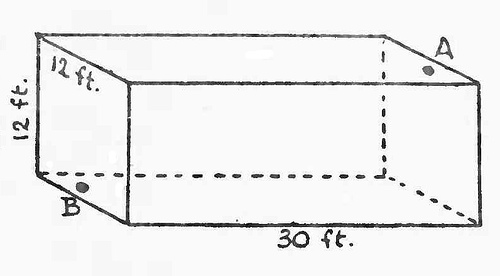
In March, 1802, a child of Jonathan White’s, Southgate, Chichester, about six months old, had a small double-bladed knife, nearly two inches and a half in length, given it to play with in the cradle. The infant swallowed it, and, as may be supposed, soon became uneasy in its stomach, though otherwise healthy. On the 24th of May, the shortest blade was discharged by the bowels; the back of it was very much corroded, its edges ragged, uneven, and saw-like; the rivet was entirely dissolved. On the 16th of June, after more than usual uneasiness, and the rejection of food, the child vomited one side of the horn handle, very much softened, and bent double; a small bit of iron passed a few days after; and on the 24th of July, another bit of a wedge-like shape, much corroded, and full of holes, and, apparently, the large blade. The child was now much emaciated, the faeces blackish, and the abdomen inflamed externally. On the 11th of August, the back of the knife, and soon after, the other side of the horn handle, were vomited; and the infant, thereafter, recovered entirely. This case, fully authenticated, has been published.
— Literary Gazette, July 11, 1818






